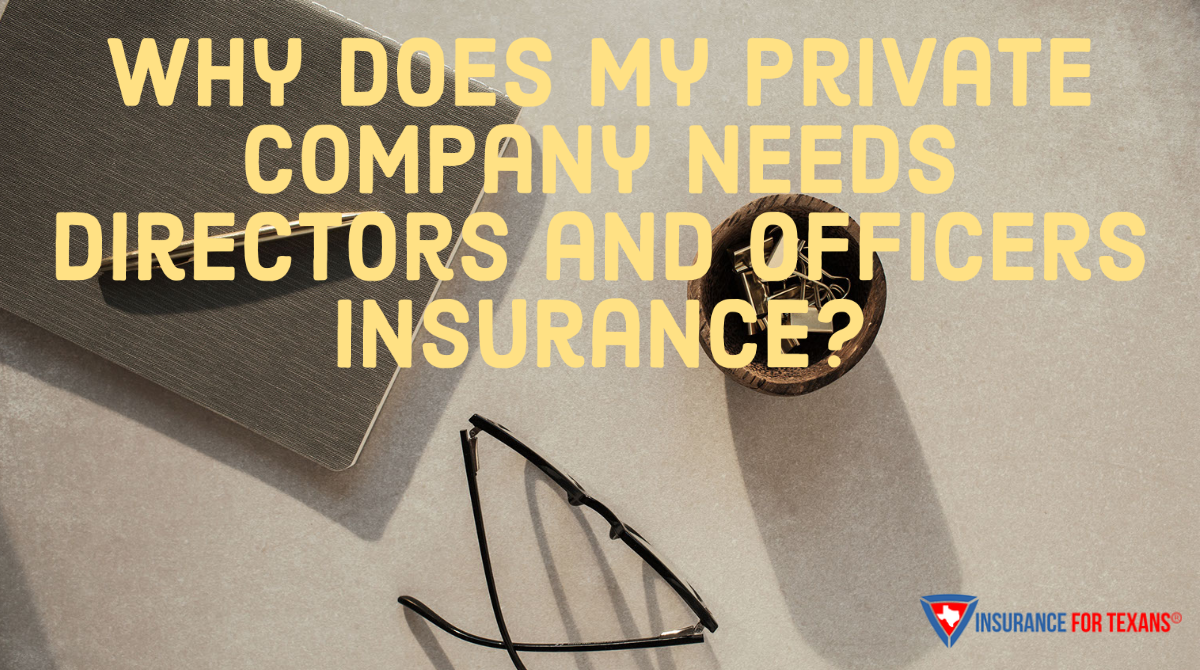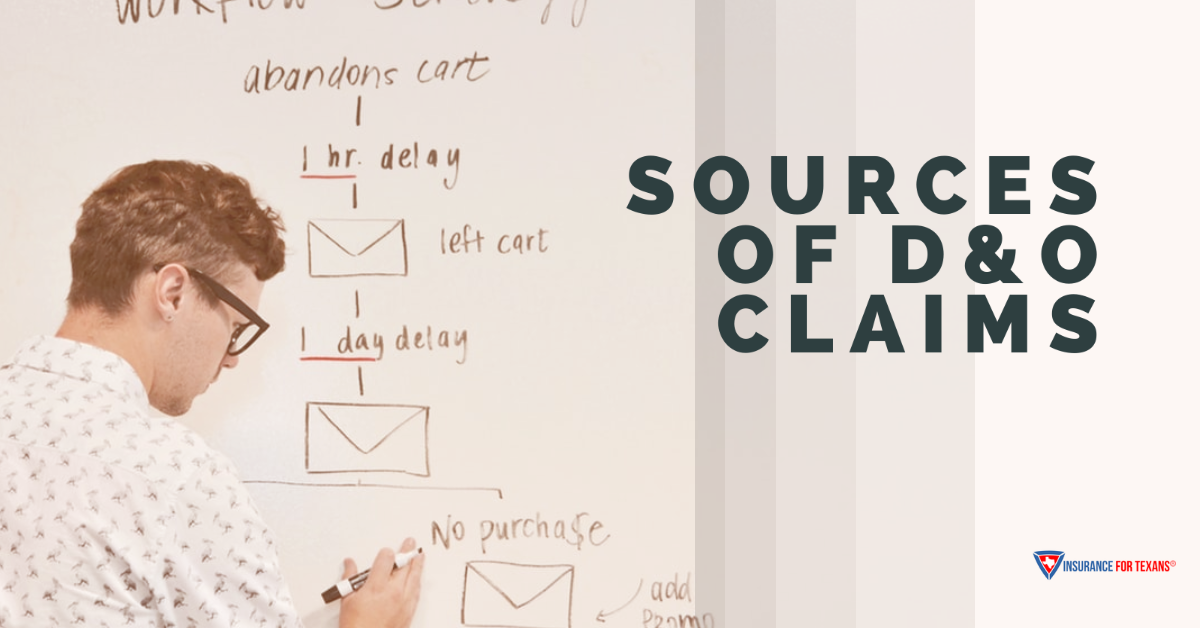Director and Officers Insurance Coverage, aka D&O insurance, is a liability insurance created to safeguard a company's directors and officers from legal proceedings that may arise from their official decisions or actions. This insurance can be beneficial for any company, but it is especially important for private companies that have a limited number of directors and officers.
D&O insurance offers coverage for corporate executives against legal claims related to their regular job duties and decisions. Directors' and Officers' insurance may be activated in the event of legal action resulting from allegations of mismanagement or misconduct within an organization.
Some private companies choose to buy employment practices liability insurance but do not opt for D&O coverage. Private companies often express reservations about purchasing coverage for directors and officers, citing reasons like not having a board or believing that employees won't sue them. However, it is important to note that directors and officers can be individually named in lawsuits against the company, which can put their personal assets at risk.

Why Purchase Directors and Officers Insurance?
One of the main reasons why private companies need D&O insurance is that they face many of the same risks as public companies. Directors and officers of private companies can be held personally liable for a wide range of actions, including breach of fiduciary duty, fraud, and negligence. These risks are especially high for private companies that have a small number of directors and officers, as each individual is likely to have a significant impact on the company’s operations and decision-making.
Another reason why private companies need D&O insurance is that they often have more limited resources than public companies. Private companies typically have fewer employees, smaller budgets, and less access to capital than public companies. As a result, they may be more vulnerable to legal action taken against their directors and officers. D&O insurance can help protect the personal assets of the company’s directors and officers in the event of a lawsuit or legal settlement, ensuring that the company can continue to operate without facing financial ruin. And given budget constraints, the insurance policies providing for defense costs will help mitigate the financial losses that will arise with any claim made that has litigation risks.
D&O insurance can also help private companies attract and retain top talent. Directors and officers are often the most experienced and knowledgeable individuals in a company, and they are responsible for making many critical decisions that can impact the company’s success. By providing D&O insurance, private companies can offer their individual directors a level of protection that can help them feel more secure in their roles knowing that the limits of liability on the insurance policies will protect them while they do their job. This can make it easier for private companies to recruit and retain top talent, which can be crucial for their long-term success.
Types of Directors and Officers Claims
When it comes to running a business, directors and officers have a significant responsibility to act in the best interests of the company and its shareholders. Unfortunately, despite their best efforts, they can still be subject to legal claims that allege wrongdoing or misconduct. These claims can be incredibly costly, both financially and to the reputation of the company and its leadership. Here are some of the top director and officer claim types:
Breach of Fiduciary Duty:
- The most common type of D&O claim.
- Allegations that a director or officer failed to act in the best interest of the company or its shareholders.
- Examples can include mismanagement, self-dealing, or conflicts of interest.
- Claims alleging that a director or officer made false or misleading statements or omitted material information in connection with the sale of securities.
- Can involve allegations of insider trading, accounting irregularities, or other financial misconduct.
- Can be brought by shareholders or regulatory bodies.
Employment Practices Liability: (This Often Must Be Added In By Choice)
- Claims arising from allegations of discrimination, harassment, or wrongful termination.
- Directors and officers can be held liable if they are found to have been involved in or aware of the conduct in question.
- Can result in significant legal fees and damages, as well as harm to the company's reputation.
Intellectual Property Disputes:
- Claims that a director or officer infringed on another company's patent or trademark.
- Can also involve allegations of misappropriation of trade secrets or other confidential information.
- Can be complex and costly, requiring extensive legal expertise.
Sources of D&O Claims
Individuals who believe they have been adversely affected by a decision made by the management of a company can make claims, regardless of whether or not they are shareholders. Claims related to D&O can be expensive, lengthy, complex, and create significant stress. D&O insurance provides coverage for various risks that board members and executives of a company may encounter, including claims from:
- Shareholders, Investors, Partners, & Members: Merger/acquisitions, financial performance, stock or other offerings, conflict of interest, bankruptcy and financial reporting;
- Customer, Clients and Consumer Groups: Refusal of credit, extension, debt collection, deceptive trade practices, contract disputes, restraint of trade, dishonesty, and cost, quality of product or services; and
- Other Third Parties, Including Competitors: Antitrust, copyright/patent infringement, business interference, competitor disputes, company defamation, tax issues and regulatory/ other government issues.
Purchasing Directors and Officers Coverage
The insurance premium for directors and officers (D&O) insurance coverage is determined by a number of factors, including the size and type of the company, the industry in which it operates, and the risk associated with the role of the directors and officers. Here are some of the key factors that can impact the premium:
- Company Size: Larger companies with a larger Board of Directors may face higher premiums due to the increased risk exposure.
- Industry: Some industries may face higher risk and therefore higher premiums, such as financial services or healthcare.
- Claims History: Companies with a history of D&O claims or litigation may face higher premiums.
- Coverage Limits: Higher coverage limits will generally result in higher premiums.
- Policy Provisions: Specific policy provisions, such as those related to employment practices liability, may impact the premium.
- Company Financials: The financial stability and profitability of the company may be considered in determining the premium.
- Insurer's Underwriting Guidelines: Each insurance provider has their own underwriting guidelines and may apply different rating factors to determine the premium.
In general, the premium for D&O insurance coverage can be a significant expense for companies, but it is a necessary cost and easy business decision to protect the company and its directors and officers from potentially costly legal claims. It's important to work with experienced insurance providers and legal professionals to ensure that the policy provides adequate coverage at a reasonable cost.
Overall, there are many reasons why private companies need D&O insurance. Whether it’s to protect their directors and officers from legal action, attract and retain top talent, or provide coverage for a wide range of other risks, D&O insurance can be an essential tool for ensuring the long-term success of a private company. If you’re a director or officer of a private company, it’s important to consider the benefits of D&O insurance and to work with an experienced insurance provider to determine the right coverage for your company’s unique needs.
How To Get D&O Insurance For Your Business
If you are currently operating without an insurance program for D&O coverage, the time to start is now. Working with an experienced independent insurance agent who can guide you through the process of finding coverage terms that protect you through entity coverage as well as protecting personal liabilities is crucial. The Commercial Texas Insurance specialists at Insurance For Texans have a playbook to make sure that the scope of operations, corporate governance, exposure to lawsuits, and scope of coverage is fully understood so that broad coverage can be put in place with the best company at the most competitive pricing. Click below to start that conversation to fully protect your business today!




